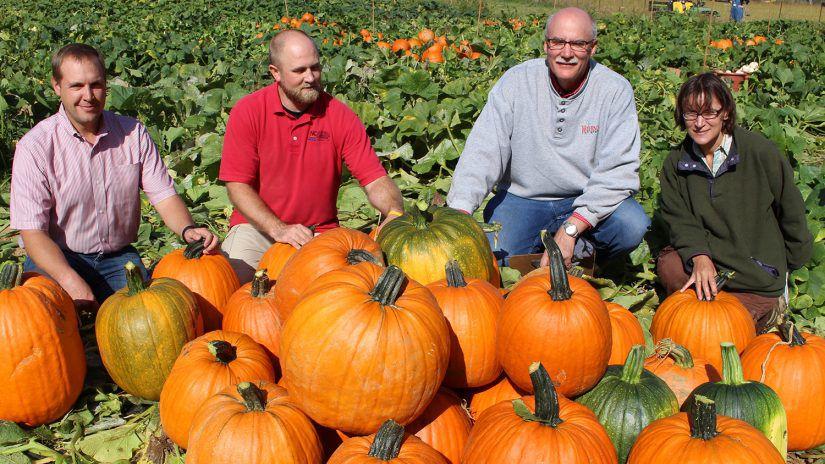At this time of year, there are probably cucurbits in your food, your house or still sitting outside people’s doors since Halloween. Cucur-what? Cucurbits, or the cucurbitaceae, are a family of plants that include crops like squash, pumpkins, melons and gourds.
Jonathan Schultheis, horticultural science professor and NC State extension specialist, discusses the research being done with cucurbits.
“We do a lot of work with seed companies and what we do is we take some of their more advanced lines or varieties or cultivars that are fairly newly released and we evaluate them and compare them among one another and see which ones yield the best and which have some of the better qualities that we’re looking at, both from a size point of view as well from an internal point of view,” Schultheis said.
These evaluations are done on a variety of crops like pumpkin, watermelon, cantaloupe, zucchini, yellow squash, spaghetti squash and blue pumpkin, according to Schultheis. More recently, tests have also been done on butternut squash, which is a crop that hasn’t had a lot of work done it since it’s not as mainstream as the other crops.
“We present that [evaluations] at grower meetings and we’ll be putting some of these things on the website when we get results,” Schultheis said. “The other things we do is we look at various ways of how we grow these crops — different growing practices — and we look at ways that might be better ways to grow them and improve either yield or quality depending on what we’re looking at. We do grafting work with the cucurbits, mainly with watermelon, and we do some work with different spacing or we do work with various pollenizers.”
Marlee Trandel, a graduate student studying horticultural science, talks about the watermelon grafting research.
“We have done an array of research dealing with grafting watermelon,” Trandel said. “The main focus of the work we do at NC State is probably grafting for diseases resistance. Fusarium wilt is one of the biggest problems we have in cucurbits. We do grafting to assess the quality and yields of the fruit.”
Trandel said grafting research is also being done to assess the overall quality of plants during growing, harvesting and storage.
“We assess fruit yields, nutritional composition and have done previous work looking at fruit decomposition,” Trandel said. “We also work with other researchers to release new rootstocks to the industry to better combat the disease issues growers are faced with.”
Cucurbit crops are grown all over North Carolina. In particular, North Carolina has a big pumpkin industry that is supported mostly in the northwest, according to Schultheis. Winter squash are also extremely well adapted to the cooler, mountainous climates in the state. Watermelon and other melons grow in the east with more heat and sandier soil.
While a variety of cucurbits can grow in North Carolina, disease still has to be managed with the crops.
“Grafting is a great form of disease control primarily in the Southeast U.S.A.,” Trandel said. “Fusarium wilt is one of the biggest problems growers and researchers combat on a year-to-year basis. Grafting also helps to stop the use of soil fumigation process and can help to decrease the use of chemical controls like fungicides and pesticides.”
Many people are not familiar with specialty types of cucurbits. The unfamiliar crops like specialty pumpkins and melons are generally nutritious and have flavor differences between the more popular cucurbits in supermarkets.
“Some of these specialty melons I much prefer over an orange-fleshed melon,” Schultheis said. “It doesn’t mean I don’t like the orange-fleshed melon but there’s some others that are really outstanding.”
It is especially important that specialty melons have consistent quality throughout in order to maintain a market, according to Schultheis. There’s always interest in expanding the diversity of the group of cucurbits and people want to see different things being offered to them as consumers.
“I think that’s one of the main goals that we have, is to look for what’s the next new thing that’s gonna be out there,” Schultheis said.













